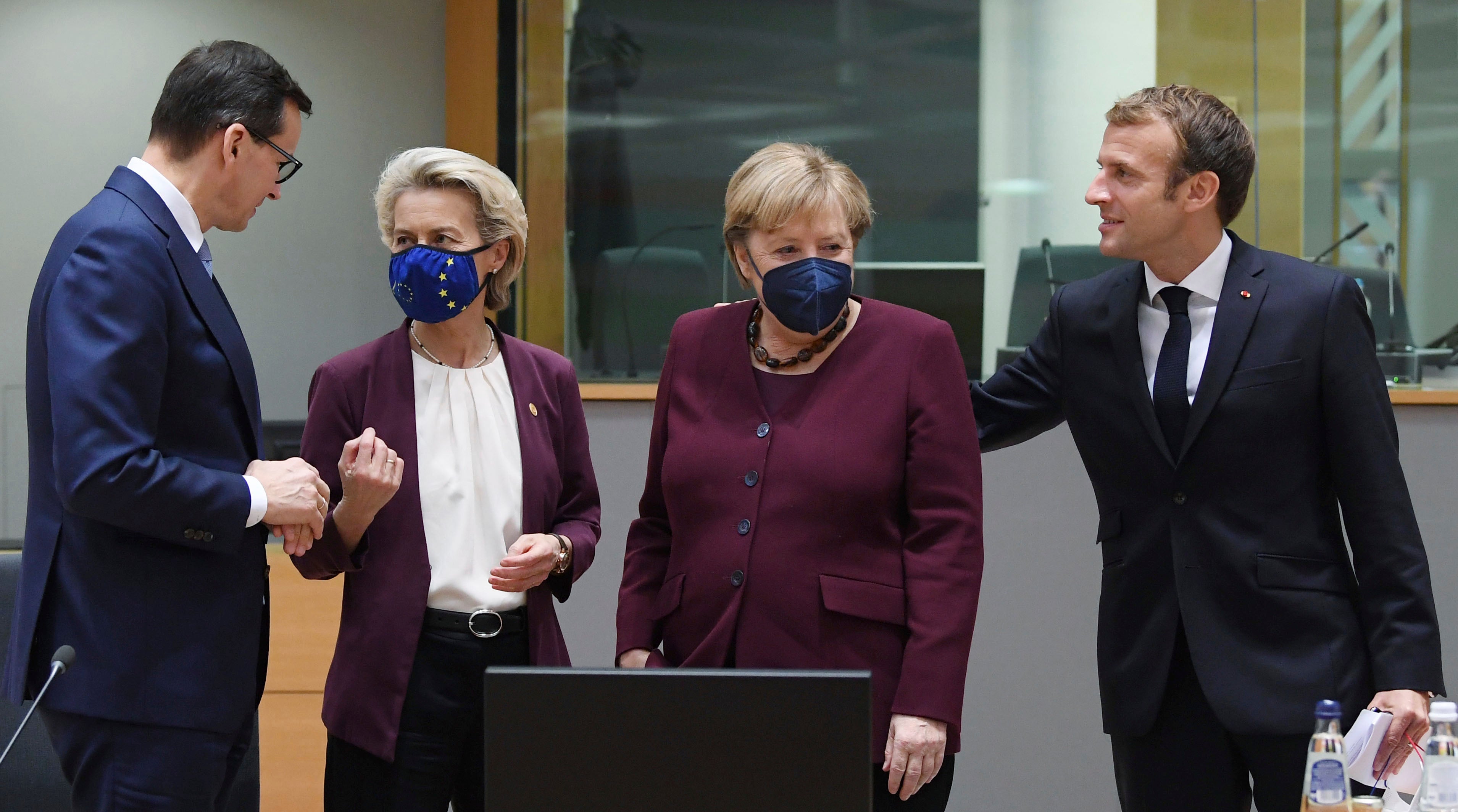EU says war rhetoric unacceptable after Polish PM's comment
A European Union official has said that there is “no place for rhetoric referring to war” among EU partners

Your support helps us to tell the story
From reproductive rights to climate change to Big Tech, The Independent is on the ground when the story is developing. Whether it's investigating the financials of Elon Musk's pro-Trump PAC or producing our latest documentary, 'The A Word', which shines a light on the American women fighting for reproductive rights, we know how important it is to parse out the facts from the messaging.
At such a critical moment in US history, we need reporters on the ground. Your donation allows us to keep sending journalists to speak to both sides of the story.
The Independent is trusted by Americans across the entire political spectrum. And unlike many other quality news outlets, we choose not to lock Americans out of our reporting and analysis with paywalls. We believe quality journalism should be available to everyone, paid for by those who can afford it.
Your support makes all the difference.The European Union's executive told Poland Monday that there is “no place for rhetoric referring to war” among EU partners, after the Polish prime minister said that for Brussels to withhold cash over rule of law issues, would be like starting “World War III.”
In an interview with the Financial Times, Polish Prime Minister Mateusz Morawiecki accused the EU of making demands of Warsaw with a “gun to our head” and urged Brussels to drop its threats of sanctions against Poland.
The comments follow years of disputes over changes Poland's government has made to the country's courts. The EU believes the changes erode democratic checks and balances, and the European Commission is holding up billions of euros to Poland earmarked in a pandemic recovery plan.
When asked if Poland could use its veto power to block legislation in retaliation, for instance on climate issues, Morawiecki said: “If they start the third world war, we are going to defend our rights with any weapons which are at our disposal."
Asked about the comment at a briefing, EU Commission spokesman Eric Mamer said the EU “is a project that very successfully contributed to establishing a lasting peace among its member states." Mamer added that “there is no place for rhetoric referring to war.”
Morawiecki faced less sanguine criticism from his Polish political opponents, many of whom are deeply worried about Poland's increasing isolation within the EU.
“I have the impression that Mr. Morawiecki has recently had some problems with English or that he has lost his mind," tweeted Marek Belka, a former left-wing Polish prime minister who is now a member of the European Parliament.
Donald Tusk the head of the leading opposition party in Poland, reacted to the “war” comment by saying: “In politics, stupidity is the cause of most serious misfortunes.”
The government spokesman, Piotr Müller, told Polish media that the prime minister's comment amounted to hyperbole and should not be taken literally.
The nationalist ruling party in Poland, Law and Justice, has been in conflict with Brussels since winning power in 2015 over a number of matters, including migration and LGBT rights. The longest running dispute, however, has centered on the Polish government’s attempts to take political control of the judiciary.
The matter came to a head earlier this month when the constitutional court ruled that some key parts of EU law are not compatible with the nation’s constitution. The ruling by a court filled with ruling party's loyalists was made after Morawiecki asked it to rule on whether EU or national law has primacy.
Commission president Ursula von der Leyen said last week that it was the first time ever that a national court found “that the EU treaties are incompatible with the national constitution.”
“This ruling calls into question the foundations of the European Union,” von der Leyen said. “It is a direct challenge to the unity of the European legal order.”
___
Sam Petrequin contributed from Brussels